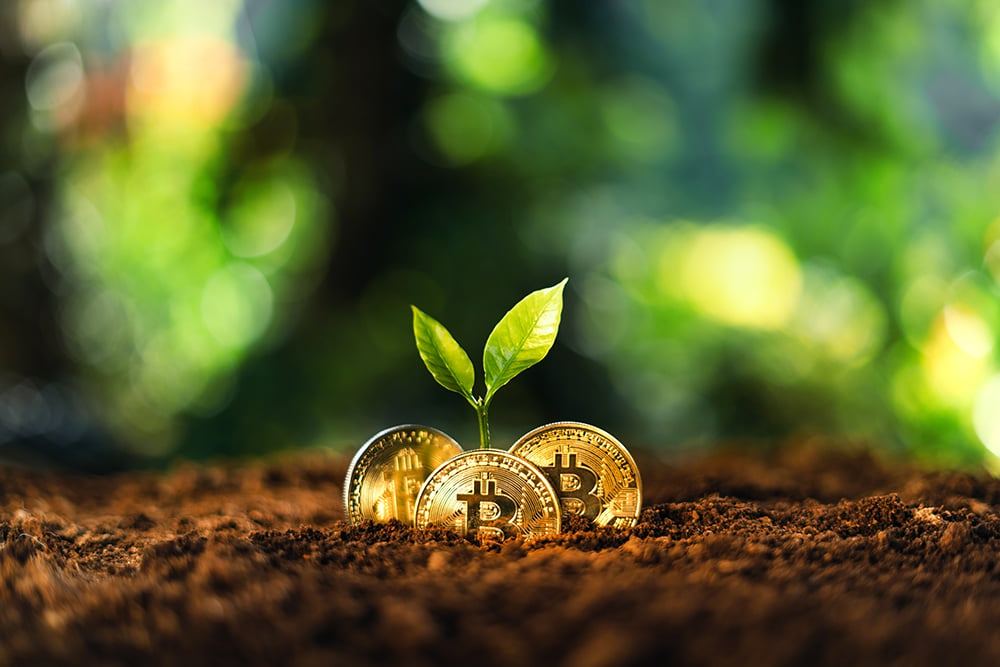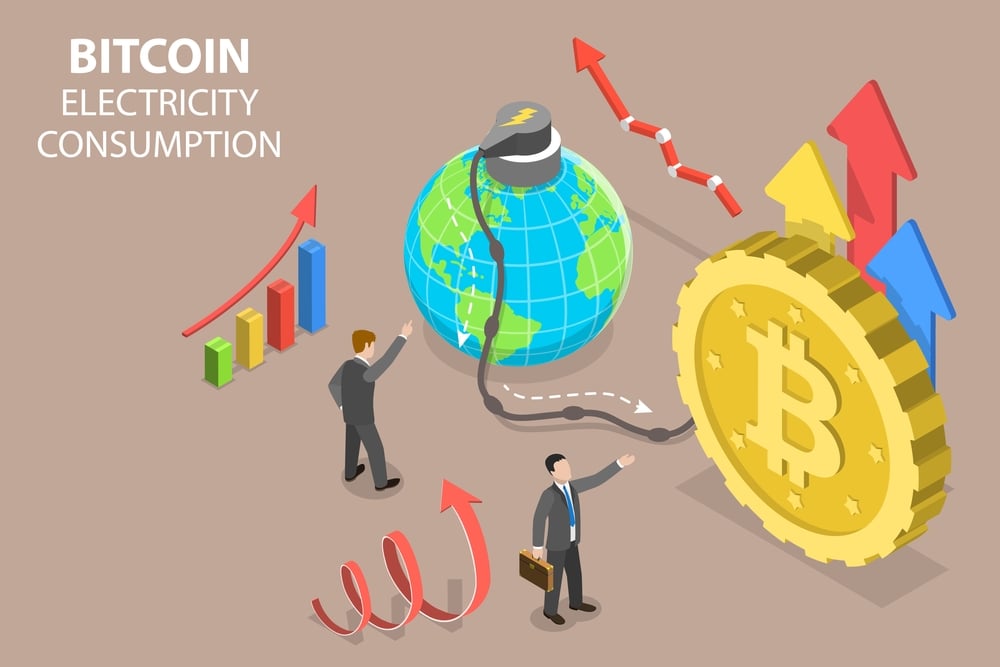Bitcoin has been dubbed the currency of the future, but it does come with certain side effects to the planet. From electricity consumption to global warming, the dark side of bitcoin mining should be talked about.
Crypto is the future! Many of us believe this, and it may even be true. Bitcoin’s meteoric rise was unforeseen, and many of us probably have crypto in our investment portfolios by this point, right? Also, do you remember the public outcry over paper cash being bad for the environment?
Well, the impact of paper money is actually insignificant in comparison to the environmental impact of Bitcoin mining. I’m not simply talking about higher electricity consumption, although that is a worry. Actually, the influence and impact of Bitcoin mining is far greater, and deserves to be discussed. Bitcoin mining is similar to oil mining, in that both consist of the human pursuit of lucrative resources, while also resulting in environmental damage.
As Bitcoin’s popularity grows, so does its environmental impact, but don’t worry! There are remedies on the way to make this digital gold rush more environmentally friendly.

Recommended Video for you:
What Is Bitcoin And How Is It Mined?
Bitcoin was invented in 2008 as a form of digital money; it is similar to cash, but it only exists online. It is just like other cryptocurrencies, but it’s the most valued digital money. It is not controlled by any government or bank, so it is decentralized and accessible to anyone.
Bitcoin mining is a digital process that generates new Bitcoins. Miners are special computers that solve complicated arithmetic puzzles to validate and add new transactions to the Bitcoin network. Miners collaborate in order to group transactions into blocks and connect them to previous blocks, forming a chain of blocks known as the blockchain.
Consider mining to be a race in which miners compete to solve the puzzle first. The winner is awarded with newly produced Bitcoins and gets to add new block to the blockchain. This method also contributes to the security of the Bitcoin network by ensuring that all transactions are authentic.
Now, let’s get into some numbers… It is believed that about one million Bitcoin miners are active and competing. Bitcoin miners collectively process thousands of transactions each second, and thus far, they’ve mined over 18 million Bitcoins out of a finite amount of 21 million. Mining farms have sprung up all over the world to create new Bitcoins, taking up enormous areas of land and consuming electricity from local power plants.

Alarming Consumption Of Electricity By Bitcoin Miners
Electricity consumption for Bitcoin mining is expanding at an alarming rate. Mining Bitcoin is the process of confirming and adding transactions to the blockchain, which requires a significant amount of computer power. This power is generated via electricity. The issue is that as more individuals mine Bitcoin, their demand for electricity increases, which can have catastrophic effects.
Bitcoin is estimated to use 707 kwH for each transaction. Furthermore, computers consume extra energy, as they generate heat and must be kept cold. To put this in context, one Bitcoin transaction consumes enough energy to power an average US household for 22.10 days, Yes, you read that right!
Bitcoin mining on a global scale is causing an increase in energy usage, similar to how leaving the lights on all the time at home might result in a large electricity bill. It is critical that we find more energy-efficient ways to mine Bitcoin, or else the ramifications for our world will be severe.

Unmasking The Carbon Footprint Of Bitcoin Mining
Bitcoin mining’s impact extends far beyond the electricity it consumes, just as a ripple effect causes waves that persist outwards. In various disturbing ways, Bitcoin mining indirectly contributes to climate change. Bitcoin mining necessitates a large number of powerful machines that consume a significant amount of electricity.
We know that the needed electricity is typically generated by the combustion of fossil fuels, which releases a significant amount of harmful greenhouse gases and increases our Carbon Footprint. Consider Bitcoin mining to be a factory that emits tons of greenhouse gases into the atmosphere. These gases, such as carbon dioxide, cover the atmosphere, thus trapping heat and driving climate change. It’s like putting fuel on the fire, and we all know what that does…

A Final Word: Seeking Solutions For A Sustainable Future
While Bitcoin is sometimes referred to as “digital gold,” it has the very real negative side effect of impacting climate change. Just as gold mining causes deforestation and environmental catastrophe, Bitcoin mining generates its own ecological tragedy. While the environmental impact of Bitcoin mining is concerning, there is reason to be hopeful about the future. To overcome this issue, it is critical that we develop more energy-efficient methods of mining Bitcoin or to shift towards other cryptocurrencies that use less electricity.
If we fail to do this, the rapid expansion of Bitcoin mining may lead to serious energy difficulties in the future. We can work toward a more sustainable and energy-conscious future by raising awareness of this issue and supporting responsible mining operations. Some forward-thinking miners are already exploring renewable energy options, such as solar, wind, and hydroelectric power for mining operations. These environmentally conscious miners are leading the way to a cleaner Bitcoin mining industry.
Let’s hope that the currency of the future won’t harm the future itself!
References (click to expand)
- B Ren. (2022) Do clean and dirty cryptocurrency markets herd differently?. ScienceDirect
- Godsiff, P. (2015). Bitcoin: Bubble or Blockchain. Agent and Multi-Agent Systems: Technologies and Applications. Springer International Publishing.
- C Stoll. (2019) The Carbon Footprint of Bitcoin: Joule. Cell
- https://www.researchgate.net/profile/Shree-Jyothi-Koutha-2/publication/362468017_VIRTUAL_CURRENCY_-EMERGENCE_OF_BITCOIN/links/62eb61a945322476937ad370/VIRTUAL-CURRENCY-EMERGENCE-OF-BITCOIN.pdf
- Bitcoin Energy Consumption Index.












